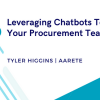Technology is meant to make our lives easier, and there are countless options in the world geared towards decreasing the time and effort spent on boring tasks. You might have heard about RPA recently and are wondering why you might want to implement RPA for your company. Even so, you might also be wondering what makes RPA a unique choice for companies looking for ways to increase their efficiency and decrease costs? If you’re wondering how RPA can benefit your organization, or if you’re just curious about RPA, let’s examine why it is different from the other tools you’ve been hearing about.
Comparing RPA to other Automation Tools
When it comes to deciding what alternatives there are to physically processing data, there are many options to consider. Programmers will often make their own scripts and businesses might have macros. In both cases, they automate tasks to make their work more efficient. However, these applications tend to focus only on very specific tasks and are not fully scalable. On the other hand, RPA solutions can integrate multiple applications at the same time and development does not require any programming experience. In the same way designers use the Adobe suite to craft their work, RPA developers use software such as UiPath and Blue Prism to engineer solutions for their clients.
RPA is NOT intelligent
It’s very easy to confuse Artificial Intelligence (AI) with RPA. RPA and AI are actually two different technologies that play distinct roles in automating business functions. Today’s AI is largely supported by research on machine learning, which is an area of study that allows computers to learn by recognizing patterns in stored data. Netflix, for instance, makes suggestions based on the movies the viewers have watched before. In most cases, machine learning needs to be trained using vast amounts of information to perform tasks accurately.
With RPA, a developer creates a rule-based process that the robot fully conforms to and follows. This means that everything an RPA robot does from beginning to end is completely dependent on how it was programmed by the developer. So, RPA cannot be considered to be an intelligent technology. RPA robots do not learn and make judgements the same way a machine learning program would. Instead, their decisions are preprogrammed sequences that won't change unless instructed.
Unrivaled Business Benefits
The value of RPA lies not just in its savings, but in the many ways it can benefit your organization. Mary Lacity describes RPA as providing a “triple win” to companies. Here is the outline of what she means and why RPA could potentially be a good fit for your business:
RPA benefits your organization. Businesses that have used RPA have reported great returns on investments. High ROIs mean that businesses can grow their operations for less.
RPA benefits your customers. Robots can perform tasks faster and more efficiently than human beings can, resulting in higher quality service and customer satisfaction.
RPA benefits your employees. Robots can take the burden of monotonous and boring tasks off the employees’ backs, allowing the employees to refocus their efforts on what matters most: customers.
When discussing RPA, make sure you know how to separate it from the other tools available today. Tools like RPA are different in that they can integrate across multiple platforms, are scalable, quicker, and more efficient than other alternatives. We discussed Mary Lacity’s “triple win”, which describes the various ways RPA benefits the ecosystem. Keep in mind that these ultimately depend on preparation and execution. RPA alone is not a universal solution. However, distinguishing RPA from the noise around today’s technologies will help you make a more informed decision when it comes to transforming your business.










